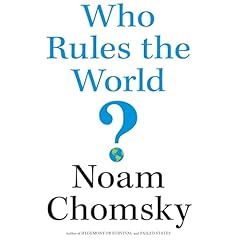
Aiding and Abetting
U.S. Foreign Assistance and State Violence
No se pudo agregar al carrito
Add to Cart failed.
Error al Agregar a Lista de Deseos.
Error al eliminar de la lista de deseos.
Error al añadir a tu biblioteca
Error al seguir el podcast
Error al dejar de seguir el podcast
 Exclusivo para miembros Prime: ¿Nuevo en Audible? Obtén 2 audiolibros gratis con tu prueba.
Exclusivo para miembros Prime: ¿Nuevo en Audible? Obtén 2 audiolibros gratis con tu prueba.Compra ahora por $15.90
-
Narrado por:
-
Rebecca Gibel
The United States is the world's leading foreign aid donor. Yet there has been little inquiry into how such assistance affects the politics and societies of recipient nations.
Drawing on four decades of data on US economic and military aid, Aiding and Abetting explores whether foreign aid does more harm than good.
Jessica Trisko Darden challenges long-standing ideas about aid and its consequences, and highlights key patterns in the relationship between assistance and violence. She persuasively demonstrates that many of the foreign aid policy challenges the US faced in the Cold War era, such as the propping up of dictators friendly to US interests, remain salient today.
Historical case studies of Indonesia, El Salvador, and South Korea illustrate how aid can uphold human freedoms or propagate human rights abuses. Aiding and Abetting encourages both advocates and critics of foreign assistance to reconsider its political and social consequences by focusing international aid efforts on the expansion of human freedom.
©2020 The Board of Trustees of the Leland Stanford Junior University (P)2020 TantorLos oyentes también disfrutaron:




















The idea that food aid can prolong conflict, and that budget support is fungible and thus can free resources for security services, was widely established in past decades. Of course, it is fine to write yet another book on these topics, but to be forward looking, a new book should look at aid practices of today. Direct food aid has been drastically scaled back, and is largely used in the more defensible context of natural disasters rather than conflict situations. Budget support is now extremely rare. And aid agencies have a trigger finger when it comes to withdrawing aid in countries with democratic backsliding. Finally, a lot of aid irritates authoritarian host governments because it is directed to civil society groups advocating for democratic, environmental, or economic reforms.
All of these reforms to US aid policy reduce the concerns described in Aiding and Abetting while having their own downsides. Irritating host governments with support to civil society in the ex-Soviet sphere of influence hurts U.S. relations with host governments and infuriates Russia. Withholding food aid from conflict zones results in immediate starvation, though hopefully at the long term benefit of shortening civil conflict. Directing health and education funds to NGOs is less cost-effective than providing budget support, and complicates the host government task of coordinating health and education policy. Chapter 6 makes passing reference to some contemporary debates, but 90% of the book is focused on the three cold war case studies. In particular, I would have appreciated more than a few minutes exploring what went wrong in South Sudan.
I also would have been interested in some analysis of 21st century aid to Indonesia and El Salvador. What effect do modern aid practices in the absence of civil conflict have on human rights practices? Presumably, the modest aid packages the U.S. provides to troubled, but not failed, states (which is the situation of most aid beneficiaries today) have different impacts than massive aid packages to countries at war.
Ultimately, this book frames the familiar, troubled history of cold-war Indonesia, El Salvador, and South Korea in terms of correlations with U.S. aid. The argument for causation is plausibly implied, but not proven. The book failed to address forward looking questions. Do 21st century reforms of U.S. aid policy indeed improve the concerns expressed in this book, as well as the number of books from the 1980s and 1990s which inspired the reforms? If not, why have they failed? If they do improve on these issues, how do the benefits compare to the costs outlined in my 3rd paragraph?
More cold-war history than analysis of current aid
Se ha producido un error. Vuelve a intentarlo dentro de unos minutos.


